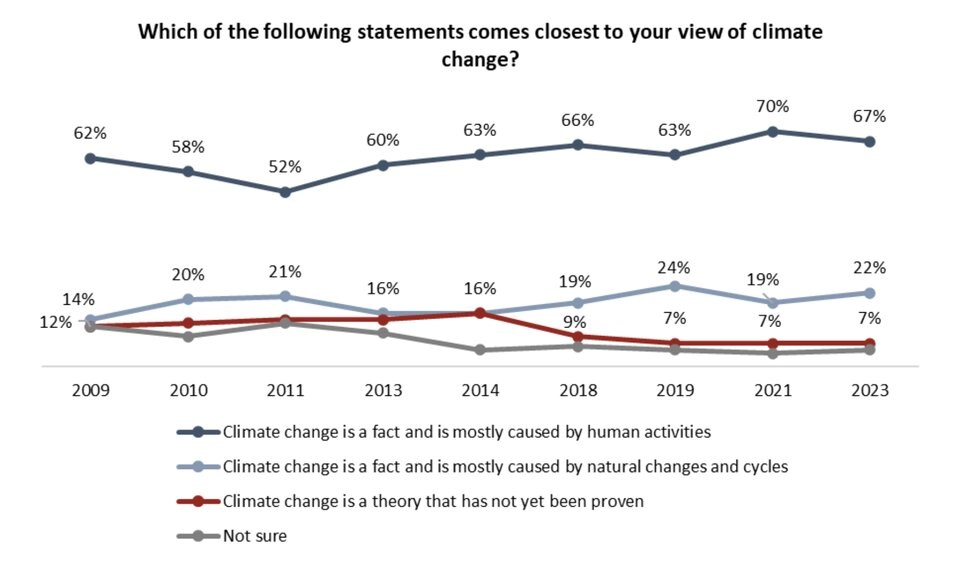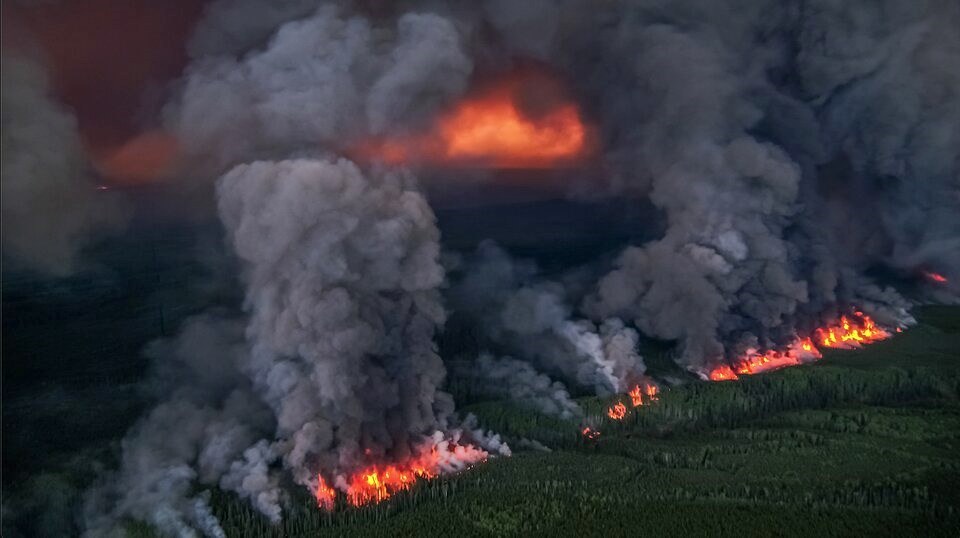Amid perceptions of an increasingly divisive political landscape, the majority of the Canadians can still agree on at least two things: climate change is real and human caused, and capitalism is driving toward a reality where the “rich get richer and the poor get poorer.”
That’s according to a poll released Wednesday by the Angus Reid Forum as part of its look into “Canada and the Culture Wars.”
“In a nation ravaged by wildfire and extreme weather events leading to catastrophic floods, it is notable that the proportion of those saying climate change is 'unproven' has dropped from 16 per cent in 2014 to just seven per cent now,” noted the pollsters.
And, most Canadians (67 per cent) acknowledge the reality of climate change and its impacts.
A 63 per cent majority described the state of climate change as a “crisis” that requires immediate action, while 21 per cent said there is no problem at all or that it’s too late to effect change.
Of those who said Canada needs to take on the problem of climate change, 48 per cent said government should take the lead in finding solutions. Another 31 per cent said businesses should bear the most responsibility, while 22 per cent said action should rest with individuals.
“Men are twice as likely as women (35% to 16%) to perceive little to no urgency, though both still hold this as a minority view,” noted the Angus Reid Forum in a summary of its findings.
The survey, which carries a margin of error of plus or minus 1.5 percentage points, was carried out among a randomized sampling of more than 3,000 Canadian adults between July 26 and 31, 2023.
At that time, Canada had already far exceeded its all-time record for most destructive wildfire season on record. One rapid attribution study found the fires in eastern Canada were made more than two-times worse due to climate change.
In B.C., the influence of climate change has been especially visible in recent years. The province has seen four of its most destructive wildfire seasons since 2017. Three of those saw more than a million hectares of forest burn across the province. By comparison, between 1919 and 2016, only three wildfires seasons burned more than half a million hectares, according to a recent study, which found climate change has made B.C. forests more flammable.
That's left researchers to conclude that B.C. will join a shortlist of global hot spots for wildfire over the coming decades.
“British Columbia is alongside California, Australia and the Mediterranean countries in southern Europe where catastrophic fire driven by climate change superimposed on decades of land-use practices has made our ecosystems more vulnerable,” said Lori Daniels, a researcher in forestry at the University of British Columbia and one of the lead authors on the September study.

The second point of majority agreement, found the survey, points to a growing skepticism around the current model of capitalism in Canada. Twice as many respondents said current market conditions were increasing the gap between rich and poor, compared to those who said Canada was a capitalist country where “anyone can get ahead.”
Those most likely to view capitalism favourably were among a group more likely to contain men and past Conservatives voters, noted the pollsters.
At the same time, half of those who said capitalism is making inequality worse said people should be able to control where to share their wealth. Only 35 per cent supported more redistribution of wealth, a percentage that went up among the lowest household income bracket.
When asked about the concept of a “wealth tax,” 73 per cent of respondents said they supported the idea. Fifty-six per cent, however, were opposed to capital gains tax levied on profits made in the sale of a principal residence if the home was worth over $1.5 million.
According to Statistics Canada, roughly two-thirds of Canadian adults own their home, a rate which has declined in recent years.
Past surveys in the series found nearly half of Canadians think the language they use in conversations is changing, and that that’s a good thing. Another 35 per cent, however, recognize the shift and said it was making society worse.




